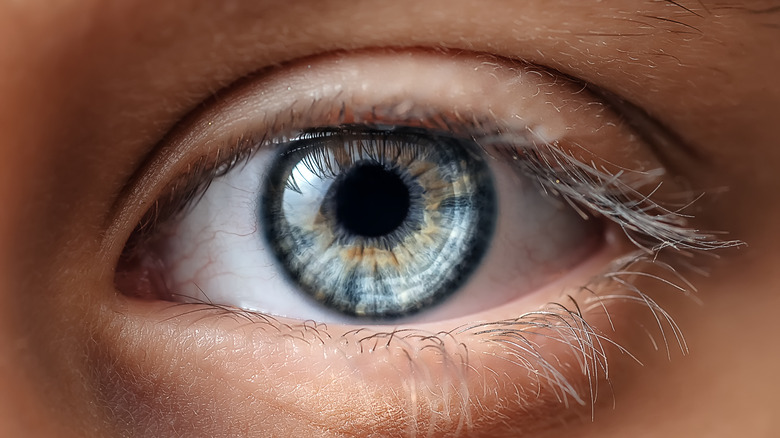What Is Thyroid Eye Disease?
Being among the initial tell-tale signs of thyroid disorders in the body, thyroid eye disease is one of the main reasons that people visit doctors suspecting health issues. Thyroid eye disease (TED) goes by many names, including Graves' ophthalmology and Graves' eye disease, per the National Organization for Rare Disorders (NORD). It's a rare yet painful autoimmune condition that impacts your vision and leads to swelling or bulging of the eyes.
Per the American Thyroid Association, thyroid hormones are released by the thyroid gland. They are responsible for maintaining body temperature and proper functions of all body organs. If dysfunctional, your gland may be overactive (hyperthyroidism) or underactive (hypothyroidism). TED is mostly associated with hyperthyroidism and doesn't develop in people with hypothyroidism.
Thyroid eye disease occurs in both males and females, but is more frequent in Asians. According to a 2014 research published in Eye and Vision, TED affects 16 out of 100,000 females, whereas it's rarer in males, occurring in 2.9 males out of 100,000. Also noteworthy is that thyroid eye disease is more common in middle-aged people and those living an unhealthy lifestyle, such as smokers.
What does thyroid eye disease feel like?
You might notice a plethora of symptoms of thyroid eye disease, including severely dry or wet eyes that might cause inflammation (via the Cleveland Clinic). Additionally, you may notice redness in the white region of the eyes. Your vision could become gritty or grainy, or at times, you might even experience double vision, which can be quite dangerous, particularly while driving. You may also have difficulty with eye movements in various directions, as it could get painful.
There may be issues with the appearance of your eyes, as they might seem bigger or bulging, which is primarily because of a hyperactive thyroid. Thyroid imbalance is known to cause eyeball swelling. It's also possible that your eyes may look puffy, especially around the eyelids. The Cleveland Clinic reports that some people experience dark circles. Overall, there may be constant discomfort in your eyes, which will need to be addressed as soon as possible.
In case of the above symptoms, it's best to get your eyes checked by an ophthalmologist. After a thorough check-up, they might offer you quick relief meds to get rid of pain and a clear treatment plan to prevent vision loss.


